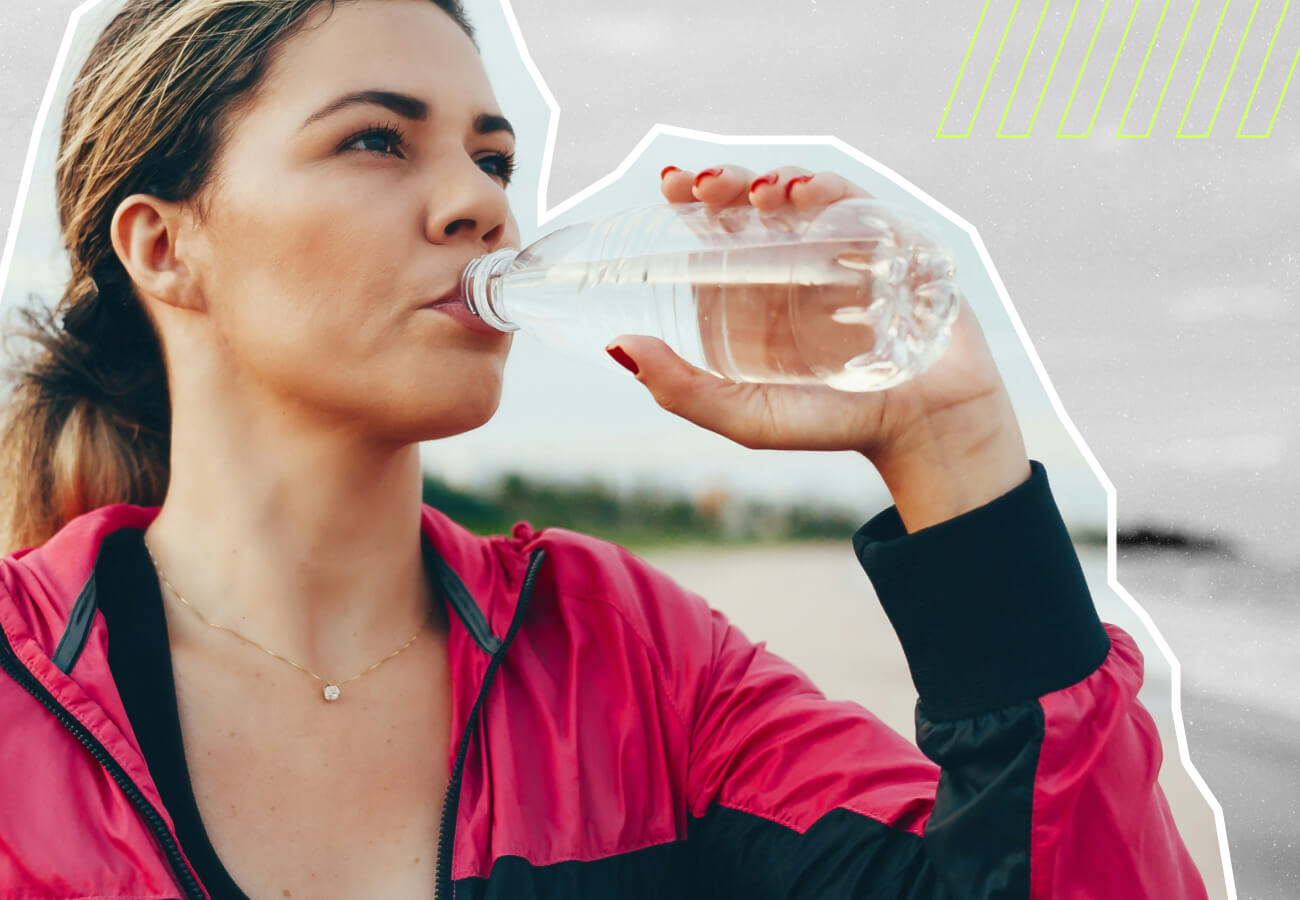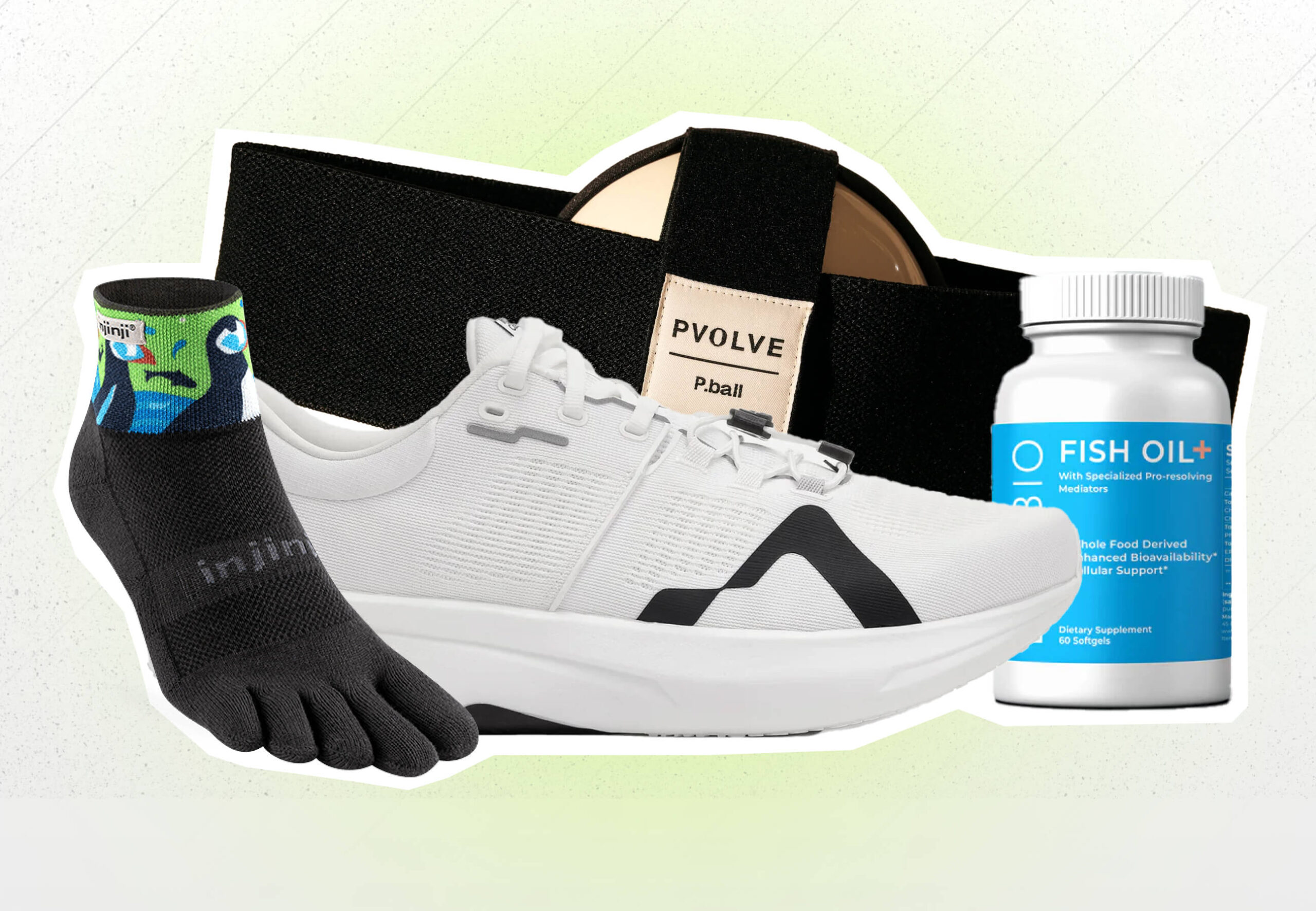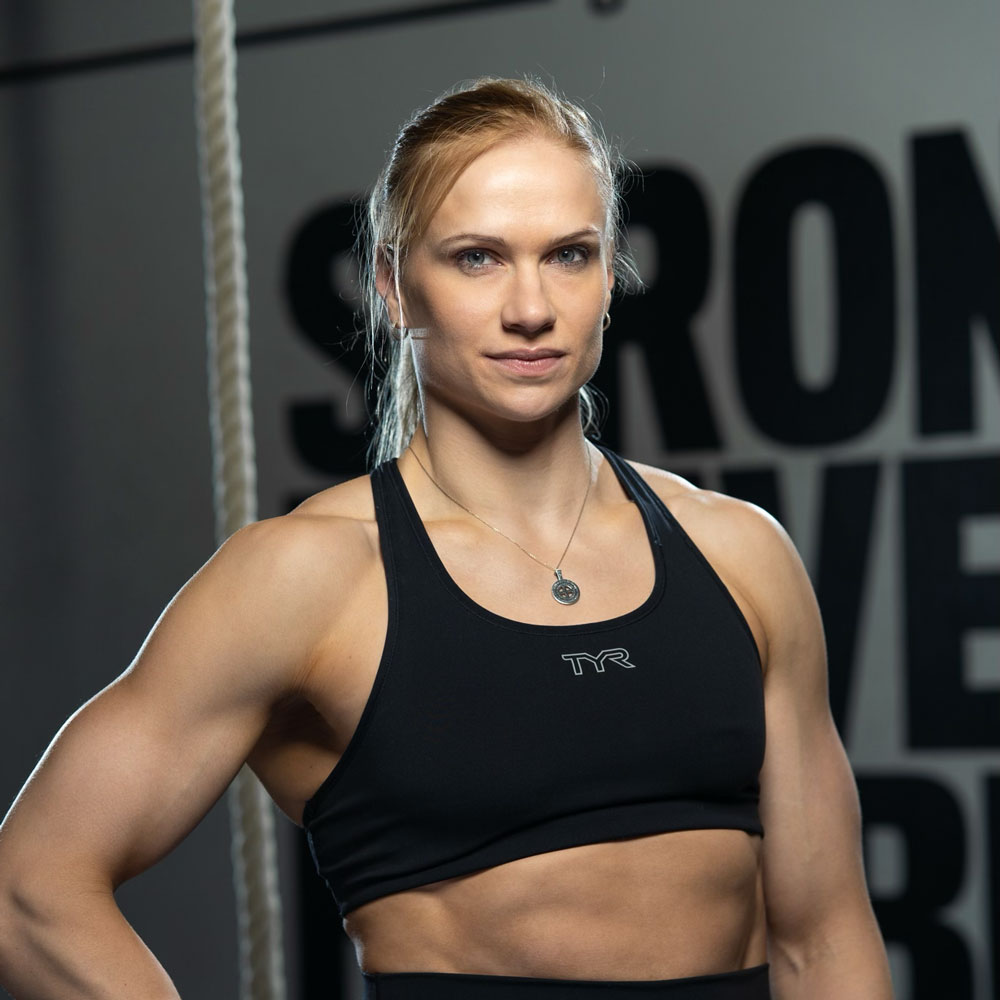How to rehydrate to optimize health and performance

- Hydration is crucial for physical and mental performance; but many athletes start activities dehydrated.
- Typically, water is ideal for rehydration, but for replenishing sweat-lost electrolytes, consider a sports drink, salty snack, or an electrolyte supplement.
- Prioritizing hydration enhances daily performance and contributes to long-term health and wellness improvements.
You require physical and mental acuity to thrive in your everyday activities. Staying hydrated is a simple yet often overlooked way to ensure optimal function.
Dehydration risks almost every bodily function, reducing physical performance and quality of life. Nevertheless, over half of professional, collegiate, and high school athletes arrive for workouts dehydrated. According to the Centers for Disease Control and Prevention report adults, on average, consumed only 44 ounces of water per day over a span of three years.
Here, you’ll learn about the science behind hydration and key strategies to not only effectively rehydrate after a workout but also how to make hydration a natural part of your routine for a healthier body and mind.
Understanding dehydration
Mild dehydration can creep up quickly, whether you’re sweating it out at the gym, hiking on a hot day, or sitting in a sauna. It’s best to stay proactive in preventing fluid loss because chances are you’re already dehydrated when you start feeling symptoms.
Common symptoms of dehydration to watch out for:
- Feeling thirsty: Thirst is a psychological sensation that motivates you to seek fluids to meet current needs.
- Dry mouth: Saliva production slows down when you’re dehydrated.
- Unusual fatigue or headache: If you’re feeling drained with a dull headache by the end of the day, you may want to focus on hydration throughout the day.
- Dizziness or lightheadedness: Dehydration reduces blood volume, causing a drop in blood pressure and reduced blood circulation to your brain.
- Acute weight loss following a workout: You may want to weigh yourself before and after a strenuous session – losing two percent or more in body weight indicates dehydration.
- Dark urine color: Research shows a darker urine color (5 or higher on this scale) is synonymous with a two percent loss in body weight and may indicate severe dehydration.
Fifty-five to 65 percent of your body is water, so staying hydrated is a priority for optimal function. When you’re hydrated, your body more efficiently regulates your core temperature, removes waste products from your cells, and reduces stress on your heart.
Drinking enough water is also essential for mental and brain health. Studies show dehydration impairs cognition, including memory, concentration, reaction time, and movement patterns – which can negatively impact your performance and increase the risk of a fall. One study even suggests that drinking water can boost mood and energy levels.
The science of rehydration
Your body absorbs water in as little as five minutes, traveling from the stomach to the small intestine to be absorbed directly into the bloodstream. Gastric emptying,or how quickly fluids exit the stomach, and fluid absorption changes moment-to-moment.
Fluid volume, fluid pH, carbohydrate intake, exercise intensity, being in the heat or cold, your current level of hydration, and the temperature of the fluid will all impact this process. For example, when you down an entire water bottle, it empties faster, but when exercise intensity increases, it empties slower.
You can maintain a healthy fluid balance between water and electrolytes in your diet. Electrolytes are essential minerals, like sodium, calcium, and potassium, that are vital to critical functions in the body by controlling the movement of fluids in and out of your cells.
Fluid balance impacts the force required to pump blood to your tissues. Dehydration can lead to fluctuations in blood pressure, causing it to drop or spike. Maintaining an adequate intake of water, along with electrolyte-rich foods or beverages throughout the day, helps prevent abrupt changes in blood pressure, promoting a state of euhydration or a healthy level of hydration.
6 Effective ways to rehydrate
The U.S. National Academies of Sciences, Engineering, and Medicine recommend that men consume 3.7 liters (15.5 cups) and women get 2.7 liters (11.5 cups) of fluids daily. However, your daily fluid needs may be higher based on age, weight, medications, or pregnancy status.
The amount of water you drink may also fluctuate with behaviors like physical activity levels, exposure to heat, or recovery from an illness. While you can watch for signs of dehydration, work with your healthcare provider if you’re unsure how much to drink based on your specific needs.
Here are six tips to stay hydrated throughout the day:
- Keep your water bottle or glass nearby as an easy cue to drink water frequently.
- To make water more appealing, add some fizz, lemon slices, cucumber, or drink mixes without added sugar.
- Enjoy fruits and vegetables with high water content, like watermelon, oranges, celery, or cucumber.
- Factor in the other fluids to your total intake; research shows coffee and tea are great ways to stay hydrated
- Incorporate low-fat or skim milk into your routine; studies show milk has added benefits of protein and electrolytes.
- If you often forget to monitor your water intake, consider using habit tracker apps that send you notifications to keep you accountable.
Rehydrating after exercise
When to Rehydrate: The National Athletic Trainers’ Association Position Statement published in the Journal of Athletic Training suggests hydration before, during, and after exercise to maintain hydration levels. During strenuous exercise, try to sip water to avoid gastrointestinal distress.
What to Drink: Plain water typically suffices to maintain fluid balance, but an intense workout or a long time in hot weather can lead to excessive sweat loss. Replenishing electrolytes will help you optimize recovery. Effective oral rehydration solutions include sports drinks, coconut water, goos, or a salty snack paired with water.
Base your intake of electrolyte-rich beverages on your individual needs. A study published in the Journal of the International Society of Sports Nutrition found that while up to 20 percent of marathoners require an electrolyte supplement to offset high sweat loss, the amount of salt to replace differed from person to person.
How to Rehydrate Fast: Add carbohydrates to your fluid intake to speed up fluid absorption. A study published in Nutrition Metabolism shows a combination of glucose and fructose facilitates gastric emptying, so water and nutrients get to your muscle cells faster.
Risks of Overhydration: While rare, drinking too much water without a balance of electrolytes can lead to a dangerous condition called hyponatremia. An electrolyte drink alongside water maintains the body’s pH balance to reduce risk.
Conclusion: Integrating effective hydration practices into daily life
Dehydration poses many risks to your health, disrupting your cardiovascular and nervous systems and impacting your ability to focus and perform. You can maintain healthy hydration levels throughout the day using simple strategies that match your lifestyle, environment, and preferences.
An individualized post-exercise rehydration plan can help you recover faster from an intense workout. Water is typically your best bet for rehydration, however, you may need to replace any electrolytes lost in sweat with a salty snack, sports drink, or electrolyte supplement.
Focusing on your hydration will not only help you see boosts in your everyday performance but may even improve your health and wellness in the long run.

 Published on Feb 27, 2024 by
Published on Feb 27, 2024 by 








